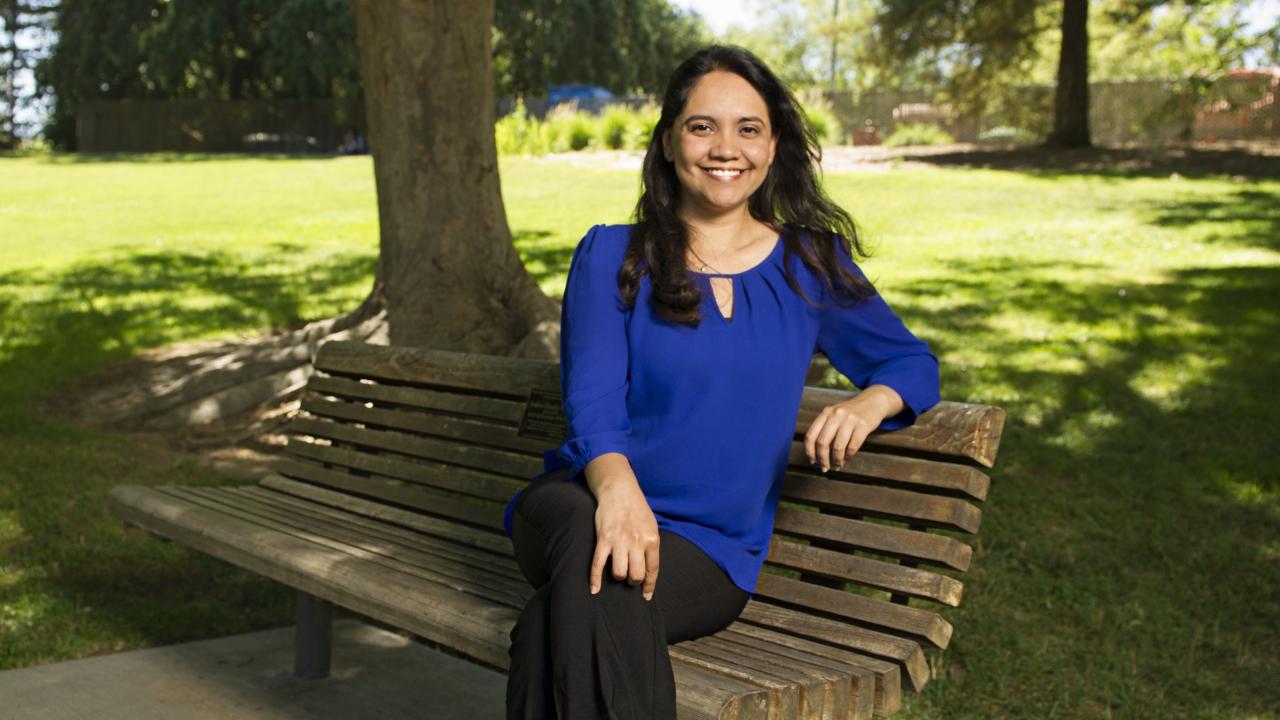
Cindy Rubio González: Faculty Assistant to the Dean for Diversity and Inclusion
By Aditi Risbud Bartl, originally posted by UC Davis Engineering.
In March, computer science professor Cindy Rubio González was appointed the College of Engineering’s first faculty assistant to the dean for diversity and inclusion. In her new role, Rubio González will help Dean Jennifer Sinclair Curtis attract, retain, serve and recognize diversity in students and faculty populations in the college.
“In engineering, we are working on complex problems that require many people to solve. There have been studies that show having diversity in the group brings multiple perspectives that lead to better solutions to complex problems,” said Rubio González. “Being an underrepresented minority myself, I know how many of these groups struggle in science and engineering fields and I have always been interested in contributing to increasing diversity since I was a student and through all of my different professional roles.”
Rubio González joined the college in November 2014 after completing her postdoctoral work in computer science at the University of California, Berkeley. She completed her Ph.D. in computer science at the University of Wisconsin, Madison in 2012. Her research areas of interest are programming languages and software engineering, with a focus on developing and applying program-analysis techniques to make software more reliable and efficient. Rubio González has received several recognitions for her research, including the National Science Foundation CAREER award in 2018 and the Department of Energy Early Career Award in 2019.
Growing up in México, Rubio González focused on music through high school and college as a pianist, but also wanted to explore her love of math in college. After some encouragement from her father, an electrical engineer, she began her education in computer science, ultimately graduating summa cum laude with degrees in computer science and piano performance from the Saltillo Institute of Technology, and the Autonomous University of Coahuila, both in México.
Rubio González will guide the college’s efforts in the American Society of Engineering Education (ASEE) Deans Diversity Initiative by chairing a faculty advisory committee charged with guiding and monitoring efforts and progress toward achieving the objectives of the college’s diversity and inclusion plan and regularly reviewing data reflecting diversity among college students, faculty and administration. She will also develop a plan to achieve Silver-level ASEE Deans Diversity Initiative Recognition within two years after the Bronze-level recognition received by the college in July 2019.
In addition, Rubio González will identify internal and external funding opportunities for improving retention of diverse engineering-undergraduate student populations. In particular, she will seek opportunities to improve retention of these populations through residential first-year bridge programs that incorporate academic instruction. She will also work closely with the college’s Associate Dean for Research and Graduate Studies to increase enrollment of diverse student populations in graduate programs and with the Associate Dean for Academic Affairs to increase the diversity of college faculty through innovative hiring practices that promote greater equity and inclusion in faculty searches.
Recently, Rubio González had the opportunity to represent UC Davis at the Congressional Hispanic Conference in Washington, DC as a Center for the Advancement of Multicultural Perspectives on Science (CAMPOS) scholar. The CAMPOS mission is to “support the discovery of knowledge by promoting women in science, starting with Latina STEM scholars and expanding to all underrepresented groups in STEM through building an inclusive environment that is diversity-driven, mentorship-grounded and career-success focused.”
“We went to visit different members of Congress from California to tell them about everything that UC Davis is doing for diversity and inclusion and to establish a strong relationship,” said Rubio González. “We wanted to tell them, ‘This really matters to us and it should matter to you, too.’”
